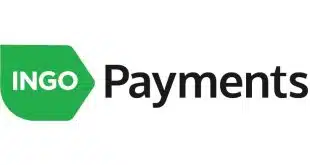After a rough year that saw its momentum slow somewhat, remote deposit capture could be poised for faster growth as banks and non-bank companies move into consumer and small-business markets, according to a new report. Indeed, growth rates for remote capture, a technology that allows businesses and individuals to deposit paper checks electronically in an office or at home, could soar if new mobile-banking services proliferate. “The cell-phone idea longer term is a way to make self-service deposits available to the masses,” Bob Meara, author of the report and a senior analyst at Boston-based researcher Celent LLC, tells Digital Transactions News. Already, USAA Bank has enjoyed remarkable success with a remote-capture service it launched in August and based on Apple Inc.'s iPhone. In the first week after its introduction, the service took in $7 million in deposits, USAA reported. And Bank Of America Corp. is reportedly planning to launch later this year its own handset-based service for remote capture. With mobile remote capture, the customer uses his phone to snap pictures of the front and back of a check, then uses an application on the phone to send the images to his bank. The service is in its infancy, and Meara notes that after a year in which banks have seen technology budgets ravaged by the recession, few financial institutions “have the stomach for it now.” But as more banks, particularly big ones like BofA, get involved, others will follows as a defensive measure, he says. “It's hard to imagine opposition to mobile [remote deposit capture],” he says. “With a bank [like BofA] entering the mix, the adoption interest is going to grow.” Helping to fuel adoption by both financial institutions and users will be a lessening of concern about fraud and security. Banks have limited consumer-based remote capture to customers known to be low risk, and will probably do likewise with the handset version of the service. “It's as secure as mobile banking, and some banks are letting you trade stocks over a mobile phone,” notes Meara. Until now, remote capture for consumers and small businesses has relied on machines most businesses?and some consumers?already have, such as combination fax/copy/scan devices. This allows banks to offer the service without requiring customers to buy or lease specialized scanners, which can run hundreds of dollars. At first, many banking executives balked at the idea, preferring the ability of specialized scanners to read MICR lines on checks. But now such machines are commonly being harnessed for remote deposit. An August Celent survey showed that roughly half of financial institutions either had a product based on such scanners, were planning one, or were considering one. Through June, nearly 100 banks had already gone live with the service, Meara's report says. “Attitudes have changed over the past year,” says Meara. “A lot of banks said. 'There ain't no way I'm doing that,' and now they're singing a different tune.” The same change of mind, he says, is likely to happen with financial institutions that are wary of handset-based remote capture as banks fear the loss of deposits to rivals that are offering the service. Overall, however, the pace of growth for remote capture?said by some to be the fastest-growing form of electronic payments ever introduced?slowed in the past year as banks reined in spending. While banks will have deployed 130,000 scanners this year, for an increase of 35% in the installed base to 463,300, that's down significantly from the 161,000 installed in 2008. The number of financial institutions offering remote capture, however, saw strong growth this year, up 52% to 10,459. Non-bank players, such as software vendors and independent sales organizations, will have accounted for another 42,000 devices for remote capture this year, for a total installed base of 505,275. The non-bank deployment this year is up from 29,000 in 2008 and 10,000 in 2007. Remote deposit capture relies on electronic check-processing methods developed largely in the wake of the Check 21 law, which went into effect in 2004.
Check Also
QorPay Adds Services From Visa’s Cybersource to Its Payments Menu
QorPay Inc. reported Thursday that it has integrated its payment technology with Visa Inc.’s Cybersource …







